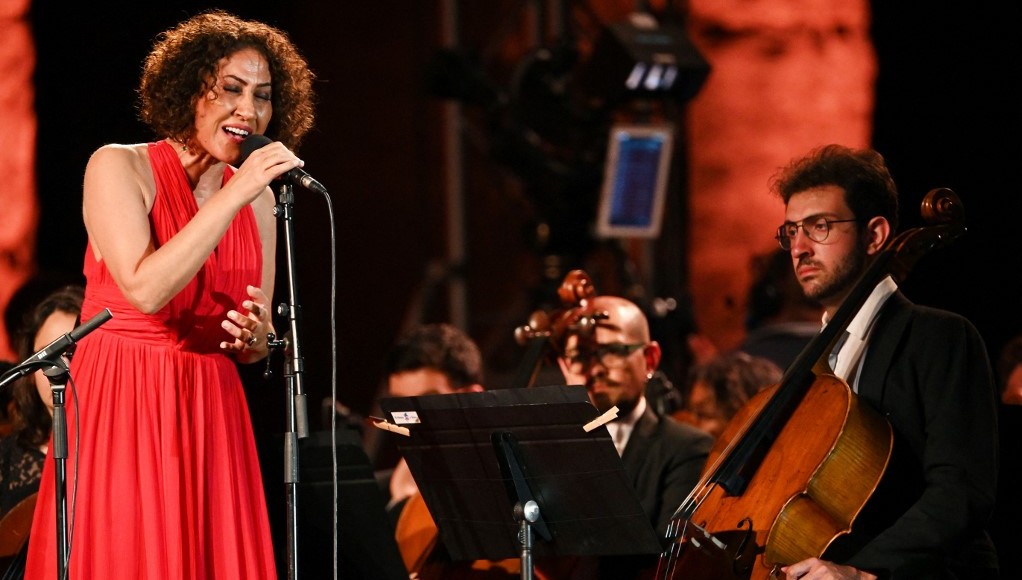Justice and Development Party (AKP) government authorities continued to be a major obstacle to the exercise of artistic freedoms in Turkey in 2020, responsible for 90 percent of all cases of violations documented in a recent Freemuse report, the Bianet news website reported on Tuesday.
Freemuse is an independent international nongovernmental organization advocating for freedom of artistic expression and cultural diversity. Freemuse has United Nations Special Consultative Status to the Economic and Social Council (UN-ECOSOC) and Consultative Status with UNESCO.
The NGO recorded in “The State of Artistic Freedom 2021” report, a research publication produced annually, 978 violations of the right to freedom of artistic expression in 89 countries and online spaces in 2020, with 72 of them taking place in Turkey.
The report said Turkey’s AKP government was responsible for 90 percent of all cases of violations documented in the country, showing that the government and state-funded bodies remained the biggest threat to artistic expression in Turkey in 2020 as well as that the authorities stayed determined to silence varying ways of voicing political dissent.
According to the report seven artists were imprisoned in Turkey in 2020, while 17 were prosecuted and 17 were detained.
Freemuse also documented 289 acts of censorship in 52 countries and online, with Turkey (32), Russia (15), France (14), Egypt (13), Mexico (12) and Cuba (10) accounting for 41 percent of all registered illegitimate restrictions on music in 2020.
Forty-three artists were silenced worldwide as a result of the “fight against terrorism” in 2020, the report said, adding that 75 percent of all cases were documented in Turkey, where five artists were imprisoned, 11 were detained, nine were prosecuted, three were subjected to a travel ban and two were prosecuted on terrorism-related charges.
Among the 289 cases of censorship affecting 469 artists, artworks, events and venues, 44 percent of which were implemented by government authorities, 16 took place in Turkey, according to the report.
“Since the 2016 attempted coup, which led to arrests and imprisonment of thousands of people, including long-standing human rights defenders and critics of the government with no history of violence, freedom of artistic expression has continuously been curbed in Turkey,” Freemuse said in the report, adding that the administration of President Recep Tayyip Erdoğan used various strategies to “curtail political dissent expressed through art and cultural activities.”
Stating that artists in Turkey suffer legal prosecution under the 1991 Anti-Terror Law (no. 3713/TMK) and Article 299 of the Turkish Penal Code (Insulting the President of the Republic), which are both used to legitimize state repression of opposing ideas and individuals, Freemuse urged the authorities to refrain from “this practice of stifling critical expressions.”
“Freemuse also calls on Turkish authorities to repeal the Penal Code—Article 299 used for silencing criticism against President Erdoğan. This legislation has no place in a democracy where heads of state should be subject to scrutiny and challenge without fear of consequence,” the NGO said.
Musicians in Turkey, who represent one of the occupations hit hardest by fallout from the coronavirus pandemic, also have been struggling with bans imposed on their concerts by local administrations across the country under various pretexts, mostly after they were targeted by Turks on social media.
More than a dozen events, including concerts and university music festivals, have been canceled by local administrations since mid-May in moves seen by many as attempts by the AKP government to interfere in people’s lifestyles and to try to force its Islamic values on the nation and have drawn criticism from musicians, actors, bar associations and human rights activists.
A midnight music ban, which was introduced as part of coronavirus measures and has not yet been lifted despite the easing of other COVID-19-related measures, is among the reasons why dissidents accuse the ruling AKP of interfering with people’s lifestyles.



